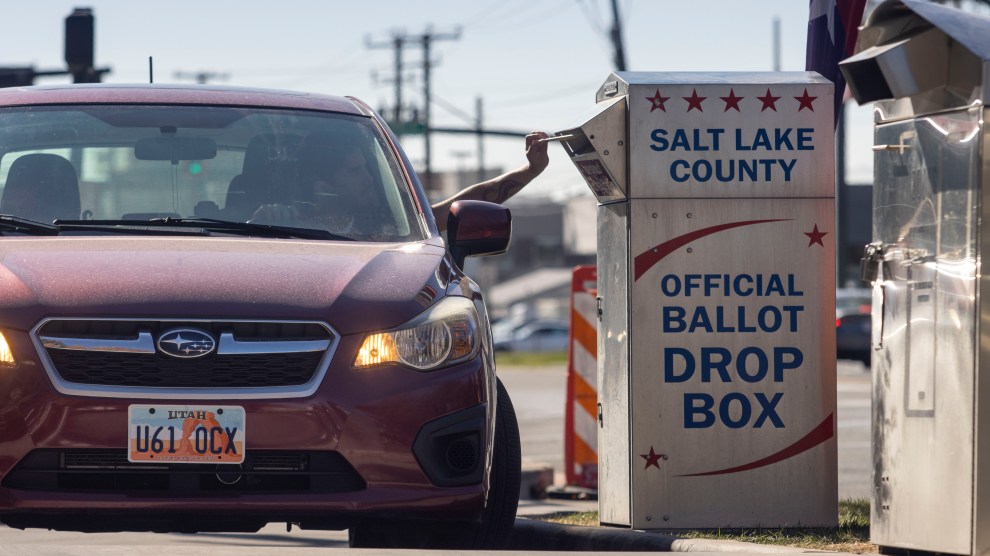
Natalie Behring/Zuma
At issue in the Supreme Court today was whether restrictive voting laws in Arizona violate the 1965 Voting Rights Act. And a Republican Party lawyer defending the restrictions couldn’t have made his intentions clearer.
Tuesday’s oral arguments in two cases—Brnovich v. DNC and Arizona Republican Party v. DNC—concerned the legality of “ballot harvesting,” a practice in which community activists collect ballots to boost voter turnout. The arguments also discussed an Arizona law that disqualified ballots cast in the wrong precinct. There’s no evidence of the voting fraud that these laws purport to limit, and voting rights activists say that the laws disproportionately limit Black, Latino, and Native American voters’ access to the polls.
So Justice Amy Coney Barrett had a simple question for the lawyer defending the GOP-backed laws: “What’s the interest of the Arizona RNC here in keeping, say, the out-of-precinct ballot disqualification rules on the books?”
“Because it puts us at a competitive disadvantage relative to Democrats,” the lawyer, Michael Carvin, responded. “Politics is a zero-sum game.”
Justice Barrett asks GOP lawyer Michael Carvin in AZ case: "why is the RNC in this case?"
Carvin admits striking down restrictions on voting "puts us at a competitive disadvantage relative to Democrats"
Another example of Republicans saying the quiet part out loud
— Ari Berman (@AriBerman) March 2, 2021
Republicans’ intentions couldn’t be any clearer. It’s not about reducing fraud. It’s about keeping minorities from voting for Democrats.















